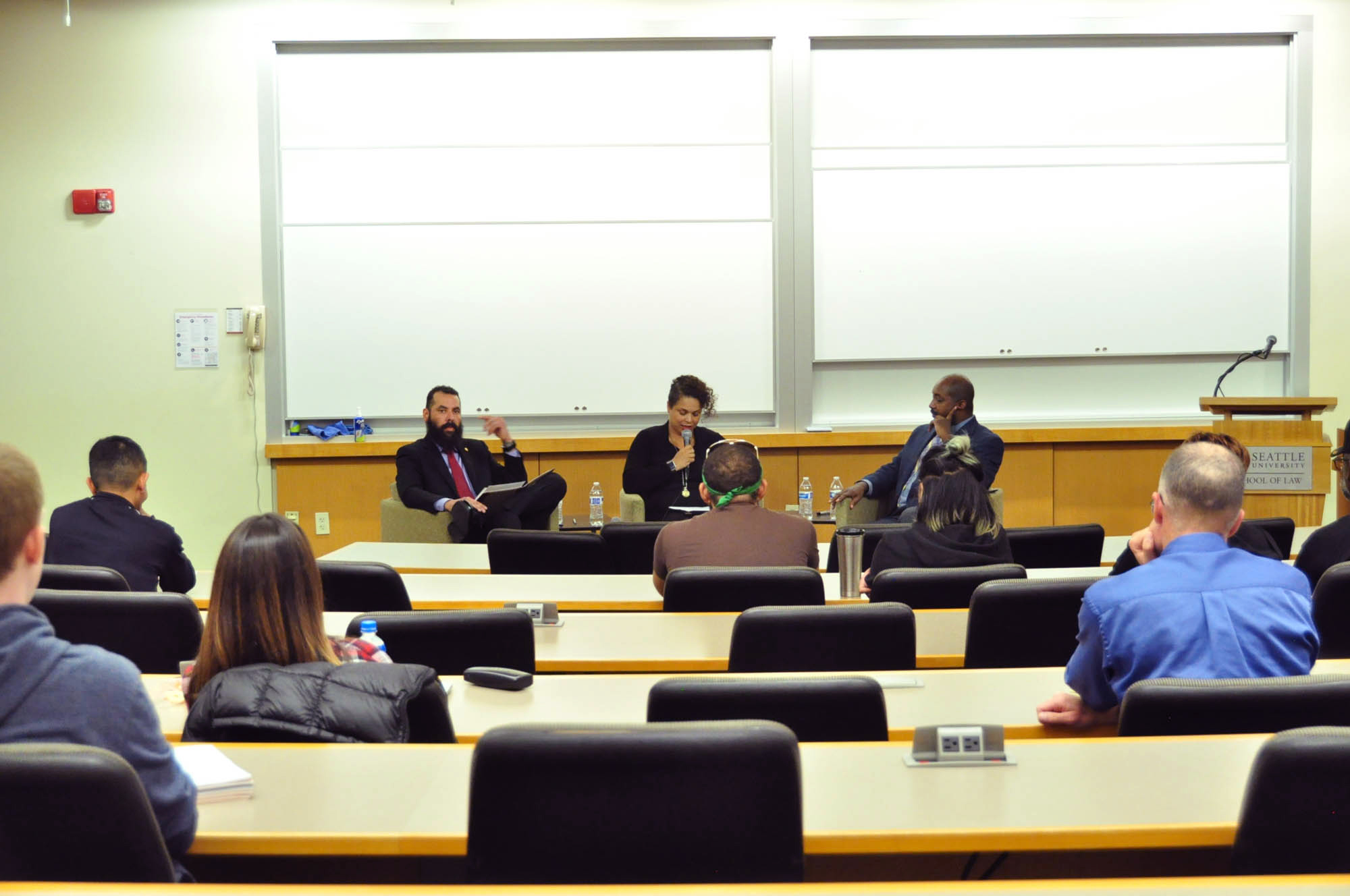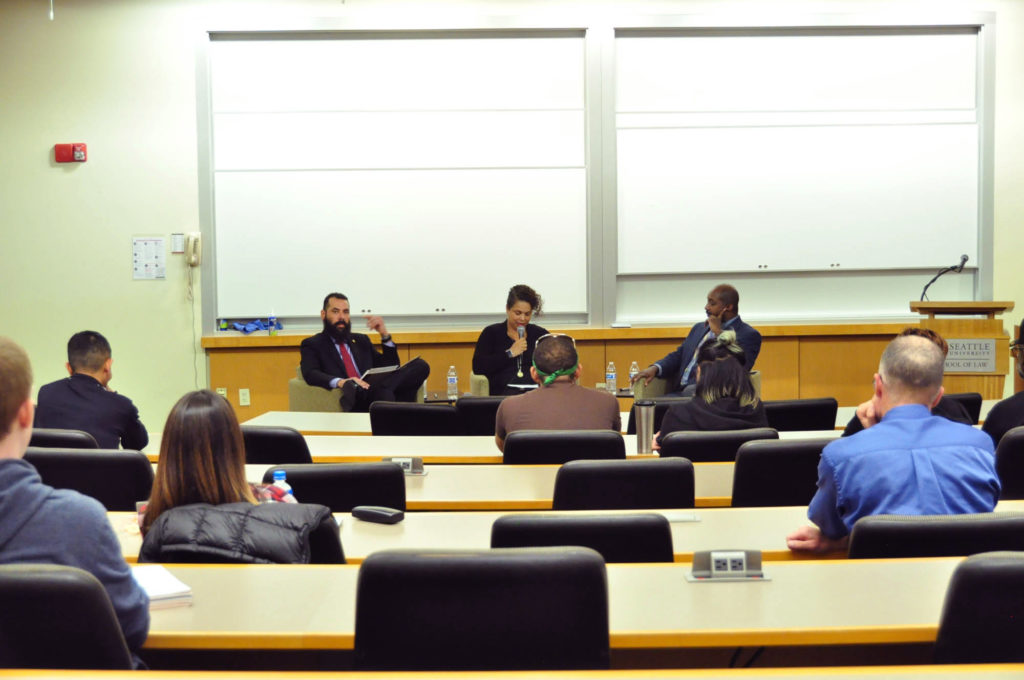“How is it that some of us become the lives that do matter and others become the lives that don’t matter?” This was the question with which Mario Barnes, professor of law at UC Irvine, began his seminar on race and social justice: Policing as If All Lives Mattered. The discussion was part of Sullivan Hall’s “Influential Voices” event series and focused on the deaths of unarmed black men occurring across the country and their underlying systemic causes.

Mario Barnes, JD was joined by two current SU School of Law professors to provide a commentary and discussion on his talk “Policing As If ‘All Lives Mattered’.”
This year many people have been killed by the police in the U.S., and the number continues to climb. While many of these aren’t representative of a malicious act of violence, this statistic has been steadily increasing since 2006. Of the casualties, consistently 30 to 40 percent are made up of African Americans, even while they only represent 13 to 14 percent of the U.S. population. All the victims of this violence have also been recurrently characterized by mental health issues and a lack of firearms.
“We live in a country with racism, but allegedly no racists,” Barnes said.
The central argument of Barnes’ presentation was that these deaths are not rooted in the behavior of individual officers, but rather in the structures and institutions that surround policing in America.
The shift of racism going from an interpersonal force to an institutional one has resulted in greater difficulty identifying the entities behind it. With this shift from individuals to systemic entities like our schools, workplaces and communities, it has become much more difficult to convict the shooter, yet the consequences for the victims have become no less severe.
Though Barnes’ research pointed to many different effects of racialized policing, there were specific results he brought attention to, namely the scenarios where these conflicts are more likely to arise.
His findings concluded that racial violence at the hands of the police is a phenomenon that primarily occurs in the presence of minor offenses, like traffic citations, while being absent in more serious crimes. That being said, Barnes’ evidence also reveals that 95 percent of black case reports cite “manner of walking” as the cause for incrimination, while 94 percent allude to “failure to comply” as the reason for arrest or violence.
This shows that in an overwhelming amount of situations, the “crime” for which black people are being victimized is not even a crime at all. Barnes referred to this effect as a crime of identity, where the act of simply being is enough to create antagonism in certain circles.
Though Barnes convincingly presented the severity of racism in our country, he also recognized the efforts of groups aiming to combat it. A significant amount of the seminar was dedicated to the subject of the Black Lives Matter movement, its history and the characteristics that make it successful.
He expressed admiration at the fact that the movement began with no money and was propelled by everyday people rather than politicians or celebrity spokespeople. Barnes also spoke to the movement’s social media beginnings as both a resourceful use of technology and a means of making it accessible to many people.
“We have a Black Lives Matter movement because we need a Black Lives Matter movement,” Barnes said.
Barnes’ dialogue encouraged audiences to look beyond their own life and circumstances and consider the struggles of other people in our country, but there are many more opportunities on campus to participate in these kinds of conversations.
“With the vast expansion of modern technology, it’s very easy for people in this generation to become overly consumed by their personal dilemmas,” said Delcine Hackley, RA for the Justice in a Diverse Society learning community in HRL. “By holding programs and events that highlight the severity of these issues, it pushes young adults, like us, to look up from their cellphones and truly see what is becoming of this country.”
Steven Bender, associate dean for the School of Law and the organizer of the event, stated that there are plans for future Influential Voices which will address similar subjects to Barnes’.
“I want to focus this year on race, teaching race and looking at race in the community,” Bender said. “Keep your eye on the law school to bring influential and provocative speakers.”
A live recording of “Policing as if All Lives Matter” will be available on the law school website https://law.seattleu.edu.
Carlos may be reached at
[email protected]












